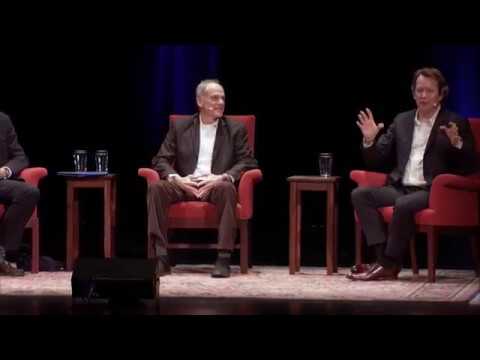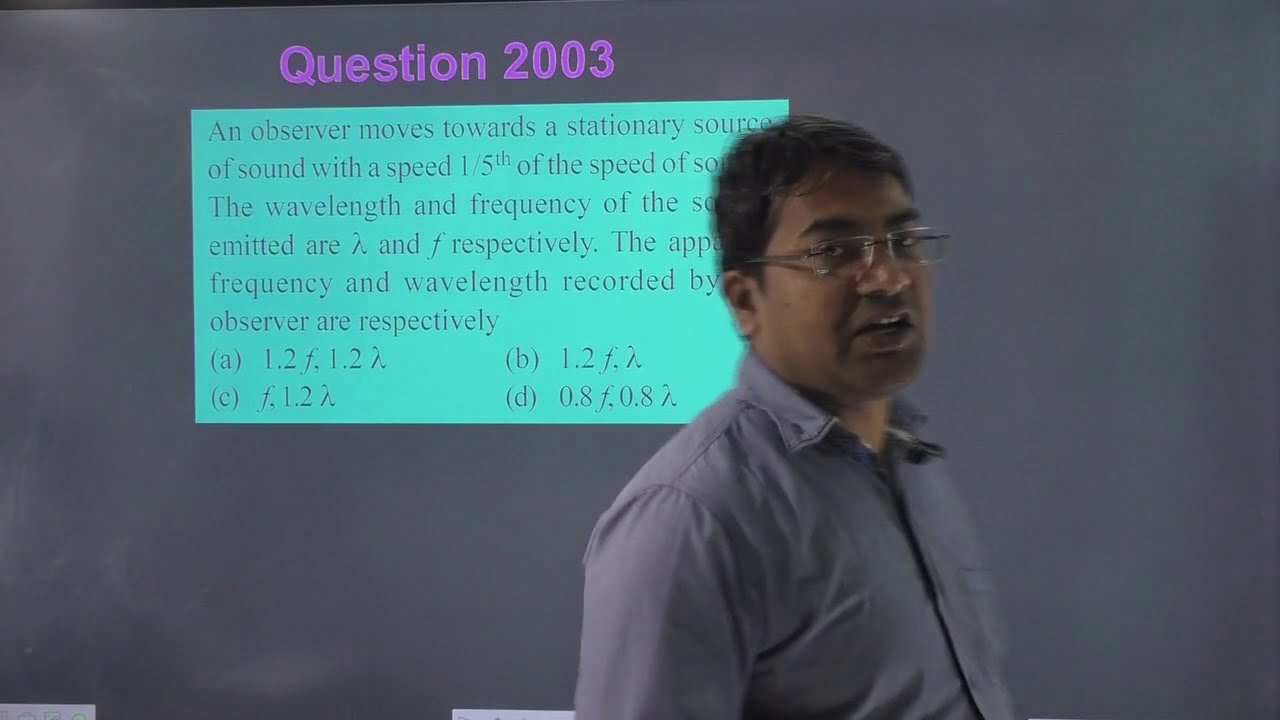ICE at Dartmouth
Alan Wallace, a world-renowned author and Buddhist scholar trained by the Dalai Lama, and Sean Carroll, a world-renowned theoretical physicist and best-selling author, discuss the nature of reality from spiritual and scientific viewpoints. Their dialogue is mediated by theoretical physicist and author Marcelo Gleiser, director of Dartmouth’s Institute for Cross-Disciplinary Engagement.
Recorded February 9, 2017
Nourse Theater – San Francisco, CA
Source




Isn’t it all about the chemical signals of hormones..
It's impossible to explain the Rainbow Body, a well-documented phenomenon, without recourse to a non-materialist philosophy.
Basically, B. is suggesting we use the scientific method on our own emotions and feelings, not just on the physical world. The scientific method is one of the greatest Western achivements, but we have not realized its full potential because we have not employed it to the part of our reality that is the most immediate and obvious: what we directly experience.
When Sean compared consciousness to geocentrism, it was kinda funny to me. In Buddhism, consciousness doesn't have a center, and you can notice that the deeper and deeper your meditation is. What I'm hearing is a big gap between a view that science should only study phenomena via external observation, and a view that science should also study phenomena and derive conclusions via direct observation and studying the observation itself through itself
As far as reality is concerned any theory is as good as any another theory.
What you believed it dictates your reality
Alan Wallace is a gem
What a great and respectful debate this was! Very informative and enjoyable! Thank you gentlemen!
The time constraints don't lend well to this format. More than ½ the time was spent on the speakers restating what people interested in this topic have long known without giving them much time to talk through the sticking points.
Thesis–antithesis→synthesis only works when there's time allotted for the back & forth at the interface.
in east we say we are God, nothing more nor less than him/her/other since when you let everything go including fear of existence you will be that, only problem that east lost the tradition of Buddha due to caste system of Hindu or due to violence of hindus on buddhist monks for being scientific like most scientist of west by christanity
Strange to watch Alan Wallace invoke the mathematical universe hypothesis and then proceed to demonstrate a complete misunderstanding of the hypothesis when he brings up the fine-tuning argument
My conscious mind is fighting with my unconscious mind
Cosmos is a dream of mind . No created by matters .
@1:07:30 the omniscience observation is important, scientists regularly speak in a way that requires omniscience to know, demonstrating how few scientists (and the overall culture) have serious depth in epistemology, modal logic, etc.
Sean Carrol is an extreme sufferer of Maya 😂😂😂😂😂
I think the original sutras of Siddhartha Gautama are closer to Sean's side than all the religiosity and sutras, not written by Siddhartha's followers, that followed long after the "Buddha" died and continues to this day. Of course the philosopher resorts to insults about being a robot…and the scientific minded presenter remain humble in front of all we don't know yet.
The heartbeat mammal thing – not true when it comes to bats.
There is a man, Jason Padgett, who suffered brain trauma in an attack at a bar. Before this attack his knowledge of math had been at the per-algebra level, after the attack he became something of a math prodigy That seems to support the idea that math is a fundamental quality of existence, and therefore, so is consciousness.
I shut this off because Sean Carroll is completely representative of the reason physicists are being seen for the useless know-it-all. They have given us a great many wonderful theories and proofs and forgotten that they DO NOT know everything about ANYTHING. FFS deflate and accept your ignorance. It's ok. You are ok. Even though you do not know everything NO ONE ELSE DOES EITHER. At least find the humility to consider this idea that so many throughout history have known as the FIRST STEP to true wisdom. You are very knowledgeable but you can't even see wisdom from where you are.
The chrystal stones, have they consciuosness? What makes them grow to be structures, mathematics?
the double slit experiment….
How would you know if the thoughts that you are getting from the amala consciousness (universal consciousness) are really thoughts from your former life and not thoughts from someone else?
10 minutes in and Sean has made at least two major logical fallacies. Is that the best you've 'got', Sean?
I just can’t get that image of the Dalai Lama forcing that kid to kiss him on the lips. He’s not holy neither does he possess any real wisdom. Not hurting others is real altruism and wisdom.
Alan's position is much weaker than Sean's but Alan is a better debater than Sean
There is NO Grand unification theory. Sean knows this and yet to say physicists knows every partical is absurd. String theory and m-theory is what comes closes to explaining the structure of reality . Theory clearly states that our 4 dimensional universe is one of the universe in a 11 to 21 dimensions super structure. 10 dimensional being are gods by definition in our universe.
Alan should have opened with Kalama Sutta and explaining it's meaning.
Sean keeps setting off my iPhone.
This sucked so much, mostly because of the Buddhist. The consistent straw manning using Sean as a scapegoat for all of the western philosophy when Sean said he’s open to these ideas and that he doesn’t know how everything works but is always wanting to learn. At the very least someone said “I don’t know” in this discussion.
The quote sniping from physicists about what they think about philosophical questions is the most fallacious appeal to authority there is. Scientists have had a terrible reputation in the philosophy world because of their false authority on the subject. Sean has pointed this out when comparing his colleagues that work in the philosophy and physics department.
Instead of the Buddhist saying how much of a head start the east had compared to the west, why not give an answer to any of the questions Sean asked? These should be easy, in fact, I’d wage he doesn’t have any rebuttal nor proof. Just solve consciousness bro since it’s been studied for 2,500 years.
it's not true that buddhism is just "the scientific method" and empiricism. The Buddha actually had a classification of how he would answer which questions, some of them not at all (such as the question of "is there a self"), because pondering the question would lead away from enlightenment and happiness. He told his followers not to participate in the religious debates which were a common cultural phenomenon of the time in part because they wouldn't be able to impose these rules. This guy strikes me as a bit of an orientalist hack.
the answer to the question around 1:06:00 was appallingly bad. Instead of giving an answer as to what discoveries have been made through the subjective study of the mind (since it's supposed to beggar belief that "we WHITE PEOPLE haven't learned anything from ASIA in the past 5000 years"–we did, but they were discovered through the ordinary objective method, such as gunpowder and alcohol distillation), he just begs the question again, and says he "knows people in tibet" who have deep insights on consciousness. The fact that he connects the idea "I'm not here to get you to believe buddhist doctrine" to his refusal to give an answer gives me the impression those insights are heavily infused with the precepts of buddhism.
A very quick way of showing the effect of mind with matter is to say to oneself "I want to raise my arm" and raise it! Thanks for the great conversation Alan, Sean and Marcello! 🌿
Evan Thomson should be in such debates
I wonder if the design of the first wheel by man was any less than the design of a rocket engine today. If we sum up wonders performed by science today, the share Muslim civilization in these successes would be much haviour .Why the west doesn't acknowledge it.
Sir you forget to acknowledge a sentence (Iqra be isme rabb) AlQuran,it was said at a time when thinking and inquiry in the so called white world was a crime punishable by burning the culprit.Wasnt it the beginning of renaissance.
Everyone believes (regardless of the religion or not) death is sure and that's all agree. So what science finds or not find the time of death for human.
Actually, the nature of reality is the reality of nature. And we humans are very bad at accepting reality. Well these guys holds many qualification credentials, I fear "Professionals are to knowledge, what prostitutes are to love."
Damn, it must be awkward for white people there… he kept bashing on white people.
It's cool to believe in the mind, but don't bash on science on not solving a problem when you can't come up with a scientific method proving your "mind".
The only reality is the reality we live every single day, don't matter what, …work…. live….and ….die…..we can…create…or destroy…is only transformation….🤔…..👍
Which is which?
The Host
The Budhist scholar
The Theoretical physicist
Pure conjecture can never reach the truth
Brain is the hardware part of man , not spirit, but spirit needs guidance from God to master truth
Just as the scientist is trapped in the conscious human mind, the other (' humanly consciously knowledgeable' buddhist is minding his 45 + years probe towards the subconscious that knows and is freed to work with far greater dedication for (average) 1/3 of our lives in our sleep but in reality non-stop (!?!) interfacing with ALL (!?!) the unknowns of our Universe and possibly multi-verses… Freud opened the can of worms … we are not celebrating the rest of the cake of our human mind, just seduced by the icing of what we can manipulate with our consciousness !!
The way this conversation is structured shows the problems in arguing apples and oranges. I enjoy reading about physics- it helps me detach from the emotional reactions i experience in response to the slings and arrows of every day living. Imagining the constructs used in particle physics, in quantum mechanics and cosmology can be a transcendent experience.
But so is practicing vipassana meditation on the phenomenon of reality.
Once, during a 45 minute session during a 10 day silent meditation retreat, the subtle phenomenon of gravity made itself known to me on a level I’d never experienced up until that point in my life. It arose through a sensation of pain on my nose, as if something was pressing on the tip of my nose from above.
The practice is to observe what your mind is experiencing without moving away from or chasing the stimuli triggering the experience. The practice is to simply stay with it, and observe the sensation. In this case, the sensation of pressure and pain on the tip of my nose grew to be very uncomfortable. I started to be distracted by thoughts about how the tip of my nose was cartilage and how it was cantilevered laterally from the supportive bones in my head. Then i started to be mindful of other parts of my face that were also exposed without skull support, and i observed how there was also the sensation of pressure from above and the nerve sensation of pain in each of those points. But parts that were structurally supported or protected from above didn’t send ‘pressure’ and ‘pain’ signals to my brain. I wondered, is this the force of gravity I’m differentiating? I experimented with tilting my head ever so slightly up and down and the sensations changed accordingly. It was as if the different changes in position afforded a way of drafting the force, the way a cyclist can gain ease in a race by drafting behind the lead cyclist, or a driver of a car can save some fuel efficiency by drafting behind a semitrailer. The way iron fillings can visually illustrate the magnetic field around a magnet, i was experiencing with my body sensations the direction of the gravitational force.
At least, I’m pretty sure i was experiencing gravity on a cellular level i had not experienced before. Intellectually, i can think, “gravity’, and think about how the body’s posture and skeleton interact with the center of gravity in the earth’s core. But that thought was not as profound as my direct experience of the reality of it through observations of various positions of my body, that was in line with or out of alignment with gravity.
As a Buddhist, and a student of psychology, meditation and physics, i appreciate the diverse methods we can employ to understand our sensation and perception of reality. The physics guy in the conversation here, I suspect, hasn’t experienced the phenomenon of gravity on the level I experienced it on a cellular level that day. Maybe he has experienced it as balance and the sensation of falling, but this was a bit different, it was microscopic not macroscopic. He intellectually may understand gravity as a field force, etc, but my bet is he hasn’t observed his intellectualism of it nor differentiated that mind phenomenon from the sensation arising from the object of gravity. He doesn’t seem to understand the difference of what he ‘knows’ of the phenomenon he studies versus how the phenomenon is sensed with his body and brain.
I’m simply suggesting Sean Carrol could understand the nature of reality more scientifically, and discuss it with less of a flagrant display of his ego, less bias if he spent more time calibrating the instrument sounding the phenomenon – his mind. It is interesting How the Buddhist read physics but the physicist had the arrogance to discuss Buddhism without knowing anything about it. That’s behavior that is very unbecoming of a scientist.
Metaphors abound in the end here and its not what I've heard from the Dalai Lama.
Consciousness is the same kind of reality as Love. The mind is the same kind of reality as the soul. The nature of the reality of these "things" is they are not things. Sounds are not music without the interpretation of people.